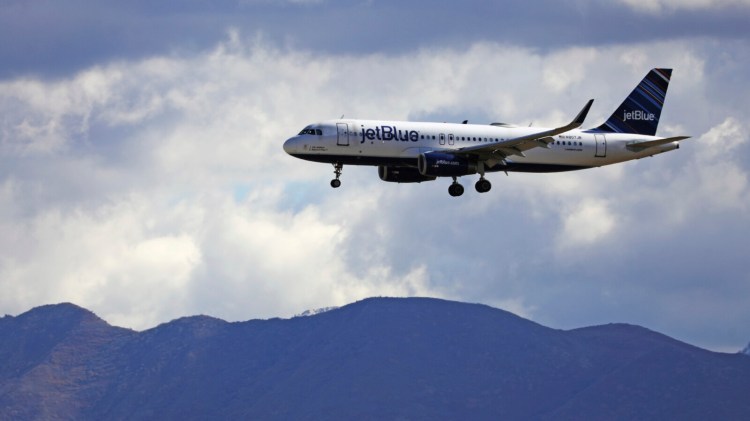JetBlue announced this week that it plans to go carbon neutral on all domestic flights starting in July, a first for a major U.S. airline.
The company’s plan involves both taking steps to reduce its flights’ overall carbon emissions and increasing its investment in carbon offsets, environmental projects that reduce emissions of greenhouse gases in the atmosphere.
“Air travel connects people and cultures, and supports a global economy, yet we must act to limit this critical industry’s contributions to climate change,” CEO Robin Hayes said in a statement. “We reduce where we can and offset where we can’t. By offsetting all of our domestic flying, we’re preparing our business for the lower-carbon economy that aviation – and all sectors – must plan for.”
With the climate crisis worsening and with millions of flights pumping out carbon dioxide every year, air travel has become a target of global criticism. The “flight-shaming” movement has particularly gained momentum across Europe, and most recently arose at Sunday’s Golden Globes, when Joaquin Phoenix called out fellow actors for taking “private jets to Palm Springs” for award ceremonies.
In recent years, more than 190 countries have signed on to measures aimed at nudging airlines toward reducing their environmental impacts, by improving fuel economy and increasing efficiency in newer planes.
Sophia Mendelsohn, head of sustainability and environmental social governance at JetBlue, said the company’s new push was driven in part by a perceived tipping point in climate awareness – and a desire to attract concerned customers.
“I think many people, whether they’re in Houston, California, Jakarta, Australia, are beginning to feel and see the climate crisis roll out in real time,” Mendelsohn said. She said customers want to know how they can be sustainable but still “go to our family reunions, to the business meetings we need to be at, to see the rest of the world.”
JetBlue has purchased a suite of AirBus planes with the highest efficiency standards, but, at the moment, tailpipe emissions from planes can only be limited so much, Mendelsohn said. To compensate, JetBlue will now calculate each flight’s carbon emissions and then offset the amount via forest conservation projects, solar and wind farms, and other efforts through Carbonfund.org, EcoAct, Neste and South Pole.
The initiative is projected to increase JetBlue’s annual total of offset emissions from an already industry-leading 2 billion pounds of carbon to between 15 and 17 billion pounds.
“Offsetting is not the end all and be all; it is not a silver bullet,” Mendelsohn said. “Our first goal is to safely avoid any emissions we can. What we can’t avoid, we offset.”
Delta Airlines has taken its own sustainability steps, introducing carbon-neutral flights and more sustainable fuel options last year. Its partners Air France, KLM and Virgin Atlantic have also worked to expand carbon offsets through sustainability programs, with plans to expand their reach in the future.
“These offsets are symbolic of our continued commitment to sustainability and our long-term target of reducing our carbon emissions by 50 percent by 2050,” Bob Somers, Delta’s senior vice president of global sales, said last summer.
United and Alaska Airlines, meanwhile, have adopted programs that allow travelers to purchase their own carbon offsets.
“It would be amazing if aviation could get to net positive rather than neutral,” Mendelsohn said.
Copy the Story LinkSend questions/comments to the editors.



Success. Please wait for the page to reload. If the page does not reload within 5 seconds, please refresh the page.
Enter your email and password to access comments.
Hi, to comment on stories you must . This profile is in addition to your subscription and website login.
Already have a commenting profile? .
Invalid username/password.
Please check your email to confirm and complete your registration.
Only subscribers are eligible to post comments. Please subscribe or login first for digital access. Here’s why.
Use the form below to reset your password. When you've submitted your account email, we will send an email with a reset code.